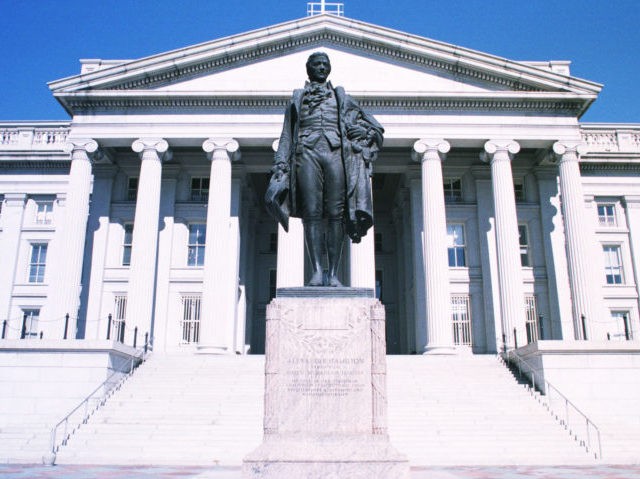Today's Top Stories From the Breitbart News Desk
The news that Merck has an effective treatment for the Covid-19 was greeted with cheers by investors. Shares of Merck shot up by nearly 9 percent, which is quite a lot for a company with a market cap of $200 billion. The rest of the market was buoyed by hope as well, something that has been increasingly rare lately.
But it wasn't just treatments (there will likely be more coming in the weeks and months ahead) that brightened spirits on Wall Street. The data on infections are increasingly encouraging. The seven-day moving average of new cases fell to 108,800 last week, down more than 30 percent from the peak on September 30. According to CDC data, 13 states have over 60 percent of their total population vaccinated, and another 21 are above 50 percent.
So not surprisingly, the virus is weighing less on the economy. Restaurant seatings are up, according to Open Table data. Economists at Bank of America report that the percentage of adults surveyed who say that they would be comfortable traveling or going on vacation ticked up to 50 percent this past week vs. a low of 44 percent in mid-August. Air travel at the end of September was 79 percent of the equivalent day in 2019, up from 71 percent at the end of August, according to TSA.
But while there may be a bit of a mini-reopening in the economy, inflation is pushing back. The University of Michigan's end-of-month consumer sentiment showed that even though the headline number improved, the attitudes toward major purchases declined. Consumers are balking at high prices and are probably put off by shortages.
There's a good reason for that. Wage gains have fallen behind price increases, so people are getting poorer. The August data on the Personal Consumption Expenditures Price Index showed that appliances are up 7 percent year-over-year, far more than almost anyone's raises over 12-months.
One important question over the next few months will be how these conflicting forces—the re-reopening accelerant and the inflation drag—affect holiday shopping. There's an increasing likelihood that consumers will opt to shop early, fearing that the supply chain disruptions will leave store shelves empty. That will initially cheer merchants but could ultimately lead to disappointment if it turns out that October retail sales simply stole from November and December.
– Alex Marlow & John Carney
Breitbart News Network





















































No comments:
Post a Comment